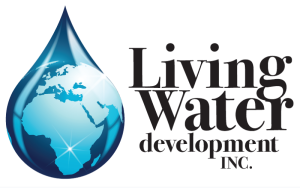Our vision and approach
Vision
Empowered communities that are equipped with the knowledge and tools to deliver community led development programs that increase access to clean safe water and sanitation. WaSH.
Our Approach
Living Water Development is a Not-for-profit entity. Taking up a professional position in WaSH (Water & Sanitation, Hygiene promotion) disciplines. We have observed that communities need the full range of primary health care by way of Community led Sanitation to be given every basic opportunity to thrive as self determining and healthy communities.
Our Work
Living Water Development has delivered a number of Water Sanitation and Hygiene outcomes in Uganda, Kenya, Myanmar and Thailand, Pacific regions. These projects have focused on developing the local community to create sustainable methods to access safe water and sanitation. LWD’s role has been to assist partners in technical implementation and training of their project managers. Since 2001 LWD have trained partners in the construction and implementation of Bio Sand Filtration units, solar distillation units and Rope pumps construction including safe excavation and water distribution methods. Living Water Development has implemented a number of small projects on behalf of communities; our goal is to develop individuals and community capacity not endless projects.
Poverty alleviation is possible on a community level. LWD spends time to analyse poverty and its key indicators. Poverty is not just a ‘deficit’ view between… haves and have nots… but more one of an opportunity and cyclical view of poverty. Imbalance in power structures, education, and health are key contributors to poverty. Believing that God has made us talented people in our ability to assist others.
At LWD we like to say that “…building people transforming lives…”
Policy
Our Values and Ethics are in line with our registered constitution. Details on application.
- Developing education and awareness in and for youth.
- Providing opportunities for local communities to develop project
in Australia and abroad. - To cooperate with indigenous groups to affect their perceived
and realised needs. - Distribute necessary funds for designated projects via evaluation and budgets
- App ‘ Voluntarily observing codes of conduct set by Australian
government development practitioners.



